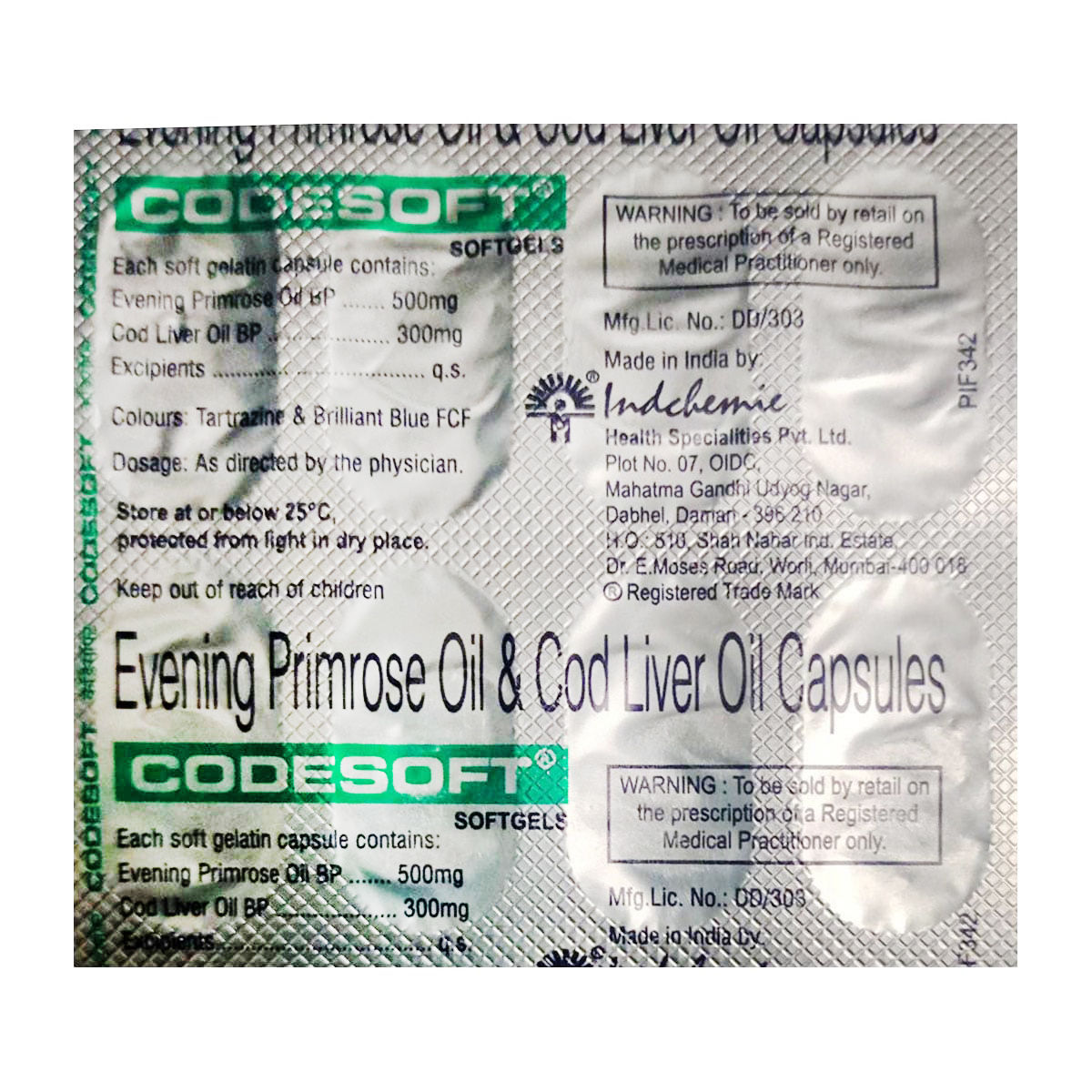Primrose Oil
About Primrose Oil
Primrose Oil is a 'Nutritional supplement' that helps to treat skin problems like acne and eczema. It also treats cyclical mastalgia (breast pain) and premenstrual syndrome symptoms (PMS) like irritability. Skin problems may occur due to a lack of essential fatty acids, which causes hormonal imbalance and may lead to skin problems like acne, eczema, rosacea, and allergies. On the other hand, mastalgia is breast pain related to the hormonal fluctuations associated with the cyclical, related to the menstrual cycle, or non-cyclical.
Primrose Oil contains Primrose oil. Primrose oil is extracted from the seed of the evening primrose oil It plays an important role in regulating hormones and promoting skin elasticity. Primrose oil works by reducing skin inflammation and the number of skin cells that cause lesions. It may also help the skin retain moisture, elasticity, firmness, and fatigue resistance.
Take Primrose Oil as recommended. This medicine causes side effects very rare. However, some people may experience nausea, stomach upset, tiredness, and diarrhea. Most of these side effects of Primrose Oil do not require medical attention and gradually resolve over time. However, if the side effects persist or worsen, please consult your doctor.
Primrose Oil should be avoided if you're allergic to it. Consult your doctor before taking Primrose Oil if you are pregnant or breastfeeding. Before taking it, inform your doctor about your medication history, including any vitamins or herbal supplements. If you have a history of blood disorders, seizures (fits), liver disease, kidney disease, or heart problems, let your doctor know before taking Primrose Oil. Also, inform your doctor that you are taking Primrose Oil before undergoing any surgery.
Uses of Primrose Oil
Medicinal Benefits
Primrose Oil contains nutritional supplements, namely, Primrose oil. Primrose oil, extracted from the seed of the evening primrose oil, contains gamma-linoleic acid (GLA), linoleic acid (LA), and omega-6 fatty acids, which play an important role in regulating hormones that promotes skin elasticity. Primrose oil works by reducing skin inflammation and the number of skin cells that cause lesions. It may also help the skin retain moisture, elasticity, firmness, and fatigue resistance and improve its epidermis. It is highly effective in treating premenstrual syndrome (PMS) symptoms such as irritability and bloating. Also, reduce inflammation and help inhibit prostaglandins that cause cyclical breast pain. Altogether, Primrose Oil treats skin problems like acne, eczema, and cyclical mastalgia (breast pain).
Directions for Use
Storage
Side Effects of Primrose Oil
- Upset stomach
- Nausea
- Headache
- Diarrhoea
- Tiredness
Patients Concern
Disease/Condition Glossary
Mastalgia: Mastalgia (breast pain) is related to the hormonal variations associated with the cyclical and related to the menstrual cycle, or non-cyclical. Normal fibrocystic changes can cause breast pain, swelling, or thick areas. Symptoms include breast tenderness, sharp, burning pain, and tightness in the breast tissue.
Hormonal Imbalance: Hormones are chemicals that are produced by glands (endocrine system) in the body. An imbalance occurs when there is too much or too little of a hormone in the body. It can be caused by stress or hormone medications. However, hormonal imbalances can also be caused by any medical condition that impacts or involves the endocrine system or glands. Symptoms of hormonal imbalance include unexplained weight gain or weight loss, changes in sensitivity to cold and heat, dehydrated skin or skin rashes, brittle or weak bones, changes in blood sugar concentration, breast tenderness, etc.
Acne vulgaris: Acne vulgaris (acne) is a skin condition caused by plugging hair follicles with oil and dead skin cells. Whiteheads, blackheads, pimples, cysts, and nodules are all types of acne. It commonly occurs in teenagers though all age groups are affected.
Eczema: Eczema is a condition in which skin patches become inflamed, itchy, cracked, and rough.
FAQs
Tell your doctor if you are pregnant or plan to become pregnant. Your doctor will weigh the benefits and potential risks before recommending them.
In some patients, a blood thinner, when taken along with Primrose Oil, may increase the time required to form blood clots. Hence, before starting Primrose Oil, inform your doctor if you are taking any blood thinner.
Unless suggested by the doctor whether to take Primrose Oil in the morning or night, one should fix a time slot, and they should take it regularly at the same time.
Primrose Oil contains Primrose oil. Primrose oil is extracted from the seed of the evening primrose oil. It plays an important role in regulating hormones and promoting skin elasticity.






